This post is part of the series Race for the Senate 2018.
 The contest for the U.S. Senate seat between former Governor Phil Bredesen and Congressman Marsha Blackburn[1] to replace retiring Republican Senator Bob Corker has been the most competitive statewide contest in Tennessee in more than a decade. With growing Republican dominance in the state since 1994, Democrats have only fielded one competitive Senate candidate prior to Bredesen and that was in 2006 when Congressman Harold Ford, Jr. competed with Corker for this same Senate seat, following the retirement of Bill Frist. Like that campaign, this one is an open seat-contest occurring in what appears to be a good year nationally for Democrats. Bredesen, even more so than Ford, has a track record of appealing to moderate Republicans and independents. His two successful gubernatorial campaigns garnered the support of business-oriented Republicans, and his policies in office often appealed to the state’s conservative lean to the consternation of liberal Democrats. In contrast to Bredesen’s theme of being able to work in a bipartisan manner, willing to support Trump policies when he thinks they are good for Tennessee and oppose the president when he thinks they aren’t, Blackburn is presenting herself as a strong conservative, closely aligned with Trump on a broad range of issues and trying to paint Bredesen as aligned with liberal Democrats in Washington.
The contest for the U.S. Senate seat between former Governor Phil Bredesen and Congressman Marsha Blackburn[1] to replace retiring Republican Senator Bob Corker has been the most competitive statewide contest in Tennessee in more than a decade. With growing Republican dominance in the state since 1994, Democrats have only fielded one competitive Senate candidate prior to Bredesen and that was in 2006 when Congressman Harold Ford, Jr. competed with Corker for this same Senate seat, following the retirement of Bill Frist. Like that campaign, this one is an open seat-contest occurring in what appears to be a good year nationally for Democrats. Bredesen, even more so than Ford, has a track record of appealing to moderate Republicans and independents. His two successful gubernatorial campaigns garnered the support of business-oriented Republicans, and his policies in office often appealed to the state’s conservative lean to the consternation of liberal Democrats. In contrast to Bredesen’s theme of being able to work in a bipartisan manner, willing to support Trump policies when he thinks they are good for Tennessee and oppose the president when he thinks they aren’t, Blackburn is presenting herself as a strong conservative, closely aligned with Trump on a broad range of issues and trying to paint Bredesen as aligned with liberal Democrats in Washington.
Even if there is a strong Democratic wave nationally, winning a Tennessee Senate seat would be difficult for a Democrat. In the 2006 midterm wave election, Republicans won only one of six toss-up Senate contests, and that one was in Tennessee as Corker defeated Ford. And all indications are that the state has taken a stronger Republican slant since then. The margins of victory for Republican presidential candidates has increased from 14 percent in 2004 to 15 percent in 2008 to 21 percent in 2012 to 27 percent for Trump over Hillary Clinton in 2016. Nevertheless, Democrats have had some reasons to be cautiously hopeful.
Aside from Bredesen’s reputation as a moderate-to-conservative Democrat willing to buck the national party and attract independents and Republicans, Marsha Blackburn represents the more stridently conservative and newer element with the Tennessee Republican party. In the past the more moderate conservative faction of the party has won nearly every nomination for statewide office and dates back to the Civil War when many east Tennesseans opposed secession. Both current senators, Corker and Lamar Alexander, as well as outgoing Governor Bill Haslam, come from that branch of the party. They have faced ever-growing challenges from more conservative elements and have had to move to the right to win nominations. (Some observers suggest that Corker’s retirement was in part due to an expectation of facing a well-financed conservative primary challenge.) Aside from the intraparty conflict, the older element fears that an extreme conservative, like Blackburn, makes the party more vulnerable in general elections. At one point prior to the filing deadline for the 2018 Senate race, there was a serious effort to get Corker to reconsider his announced retirement and challenge Blackburn in the Republican primary (as some early polling indicated that Bredesen was ahead or even with Blackburn). Although he declined to do so in the end, Corker’s support for Blackburn has been tepid. He has said that he will vote for her but that he likes Bredesen and will not campaign against him.
Blackburn has not chosen to moderate her stances or style during the campaign. She ties herself closely to President Trump and takes a hardline stand on immigration, attacking Bredesen for not favoring the wall and for his opposition to the tax cut. But much of her campaign has emphasized a strong partisan tone. During debates and in ads, Blackburn tries to link Bredesen to liberal Democrats continuously mentioning his support for Hillary Clinton in 2016 and claiming repeatedly he will be a tool of Chuck Schumer in the Senate. Ads, largely from party and independent groups, warn against the consequences of a Democratic majority in the Senate and feature visuals and some sound bites of Dianne Feinstein, Corey Booker, Kamala Harris, Bernie Sanders, Elizabeth Warren, and Maxine Waters (in addition to Schumer). The gender and racial mix in these ads is not subtle. It is clear that the Blackburn campaign strategy is to activate the Republican base that supports Trump and to hold more moderate Republicans by raising concerns of Democratic control of the Senate. Trump has had rallies twice in Tennessee on behalf of Blackburn and made personally derisive comments about Bredesen.
Bredesen has countered by discussing his moderate record and willingness to work across the aisle, claiming that Blackburn’s partisan rancor is what is wrong with Washington. He says that he is independent of Schumer and will not support him for leader. A major part of his attack on Blackburn focuses on the opioid issue. Blackburn was featured in a “60 Minutes” story as a key sponsor of legislation that limited DEA from controlling drug company distribution of opioids. The spot then cites the campaign monies that she has received from the pharmaceutical industry over the years. As might be expected, national Democratic figures are keeping their distance from Tennessee.
The Kavanaugh nomination created a problem for Bredesen. If he supported the nomination, it would demonstrate his claim of independence from national Democrats and help attract Republican voters, but it would undercut the enthusiasm of the activist core of Democrats who strongly opposed Kavanaugh. And the reverse would occur is he came out against Kavanaugh. In the end, Bredesen offered a measured statement indicating that he would support the nomination although conceding that he did not have all the information that was available to senators. In the short term there is some anecdotal information to suggest that some women activists are withdrawing their support because of that position. But there is no data indicating an overall effect or whether it will persist through Election Day.
Third-quarter fundraising totals will become available shortly. There is little indication that either campaign is lacking for resources internally. But television is now being saturated with advertising from outside groups. Those groups are currently spending more than twice as much for Blackburn as for Bredesen.
In most years and in most races, a generic Republican nominee could easily march to victory in a statewide office in Tennessee. However, the national dynamics that make Republicans particularly vulnerable in 2018 has created an opportunity for the right kind of Democrat to have a shot. As a successful and moderate two-term Nashville mayor and two-term governor, Democrats hope Phil Bredesen is that Democrat. However, the strength of the Republican Party in Tennessee could overwhelm any national blue wave, and ensure a Blackburn win.
[1] Blackburn prefers to be called Congressman. (Back to top.)
The Brookings Institution is committed to quality, independence, and impact.
We are supported by a diverse array of funders. In line with our values and policies, each Brookings publication represents the sole views of its author(s).

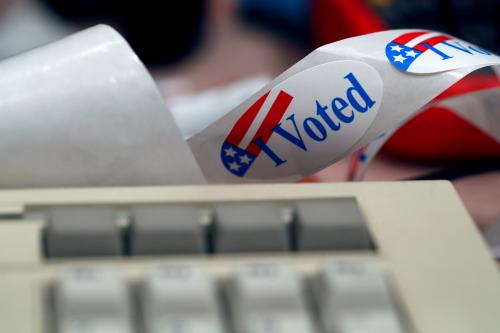
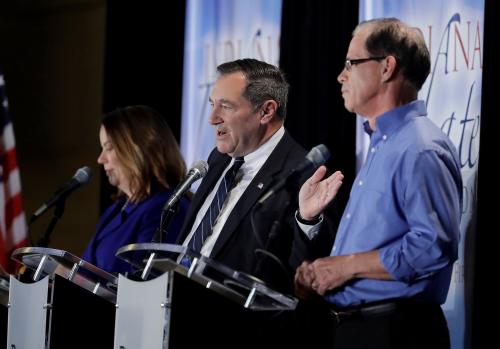
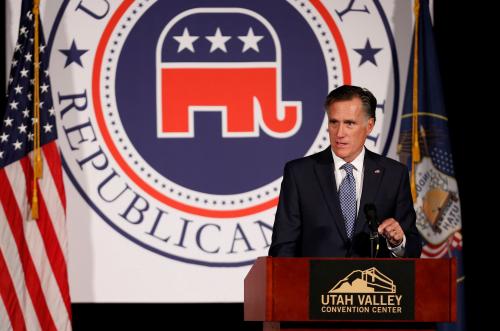
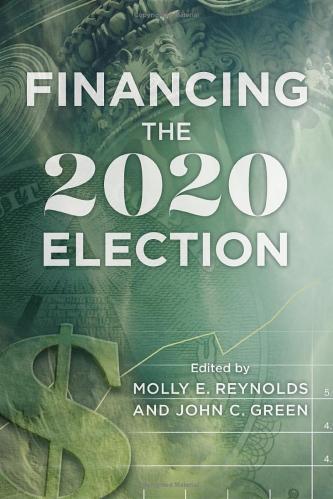
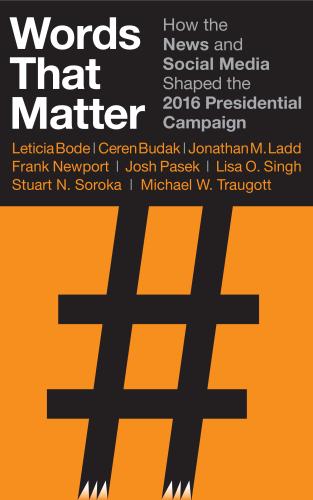




Commentary
Race for the Senate 2018: Key issues in Tennessee
October 30, 2018